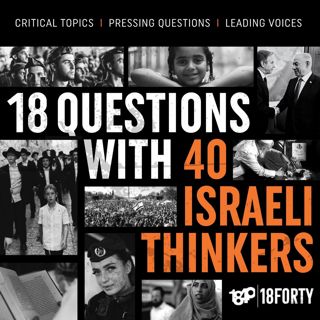Jaksokuvaus
After Auschwitz, Anita Shapira says, Jews understood the necessity of power—and the necessity of statehood.A leading Israeli historian and author, she is professor emerita of Jewish History at Tel Aviv University and founder of the Yitzhak Rabin Center. When Anita Shapira speaks, her words are informed by acute expertise of Israeli and Jewish history—as evidenced by her many accolades and awards, including the Israel Prize for research on Jewish history in 2008.Having published groundbreaking studies on the history of Zionism, Jewish-Arab relations, and the state of Israel, Anita Shapira is a vital voice for all things Israel—past, present, and future.Now, she sits down with us to answer 18 questions on Israel, including wiping out Hamas, Israel’s catastrophe up North, her sense of Israel’s future, and so much more.This interview was held on June 19.Here are our 18 questions:As an Israeli, and as a Jew, how are you feeling at this moment in Israeli history?What has been Israel’s greatest success and greatest mistake in its war against Hamas?How do you think Hamas views the outcome and aftermath of October 7—was it a success, in their eyes?What do you look for in deciding which Knesset party to vote for?Which is more important for Israel: Judaism or democracy?Is there anything miraculous about Israeli history?Now that Israel already exists, what is the purpose of Zionism?Is opposing Zionism inherently antisemitic?Is the IDF the world’s most moral army?If you were making the case for Israel, where would you begin?Can questioning the actions of Israel’s government and army — such as in the context of this war — be a valid form of love and patriotism?What do you think is the most legitimate criticism leveled against Israel today?Do you think peace between Israelis and Palestinians will happen within your lifetime?Are there parts of Israeli-Palestinian history that it is unhelpful to discuss?What should happen with Gaza after the war?What is something you were wrong about in your historical views?Where do you identify on Israel’s political and religious spectrum, and do you have friends on the “other side”?Do you have more hope or fear for Israel and the Jewish People?
